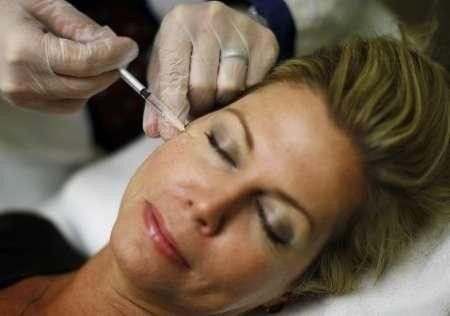Botox Stunts Emotional Growth in Young People, Finds Study
Celebrity Culture Influences Youngsters to Opt For Botox Surgery

Botox procedure is a growing trend among teenagers. According to the American Society of Plastic Surgeons, botox procedures among young people in the U.S. increased nearly 800 per cent between 2008 and 2010. Those aged 25 and younger opt for botox to smoothen their wrinkles.
Experts warn that this trend can stop the emotional growth of teenagers. The treatment softens fine lines and wrinkles, but a research conducted by UK plastic surgeons has found that it leads to frozen, plastic-like faces. Emotions due to this are not expressed to the fullest.
This happens because the procedure the muscles present in the upper face are paralysed temporarily. This is done to reduce wrinkles when people frown and express themselves through facial expressions. Lead researcher and nurse practitioner Helen Collier told BBC that this trend has begun because teenagers are influenced by celebrities and their culture. Since celebrities take to these procedures, their "inexpressive frozen face," has become the new trend.
She said that this stunts social interaction as facial expressions are highly important in gauging the other persons emotions and in facilitating a good, healthy bond with other individuals. She also pointed to the well-known psychological theory that people interact with others by mimicking their expressions. When someone does not feel like the other is mimicking their emotion they may feel that the other with blank expressions is not hearing them or is uninterested.
A lack of expression on a person's face not only disrupts good communication between people but also stunts emotional and social development, she said. Adolescents may be conveying wrong feelings.
Developmental psychologist Dr Rose Cantali states the same, also highlighting that people who have done Botox would find it hard to "engage in meaningful conversation and understand emotional intent."
"This could create a sense of powerlessness, you would be emotionally disabled," Cantali explains.
Cantali thinks that this growing trend is due to "celebrity culture" and the trend of "selfies." She also explained that though the effects of the toxins are temporary, research suggests the muscles don't fully recover from injections. Youngsters may be informed about the pros and cons before the treatment is administered to them.
The research also advises practitioners to assess the skin and check if it really requires the treatment. A person's social well being must be put before financial gains, they said. Collier said that instead of treatment, an attempt to raise the individual's confidence level must be made. Youngsters resort to this treatment due to a low self-esteem and insecurities about their looks. If treatment is not a necessity, she advises that it must be avoided.
Dr Michael Lewis, a researcher in psychology at Cardiff University, threw light on the way emotions and expressions are related. He said that while happiness causes a happy expression, a happy expression could also cause happiness. The expressions on the face also affect the person's emotions. "Treatment with drugs like Botox prevents the patient from being able to make a particular expression and can therefore have an effect on our learning to feel emotions naturally," said Lewis
The research is set to be presented at the Clinical Cosmetic and Reconstructive Expo in October and is published online in the Journal of Aesthetic Nursing.




















